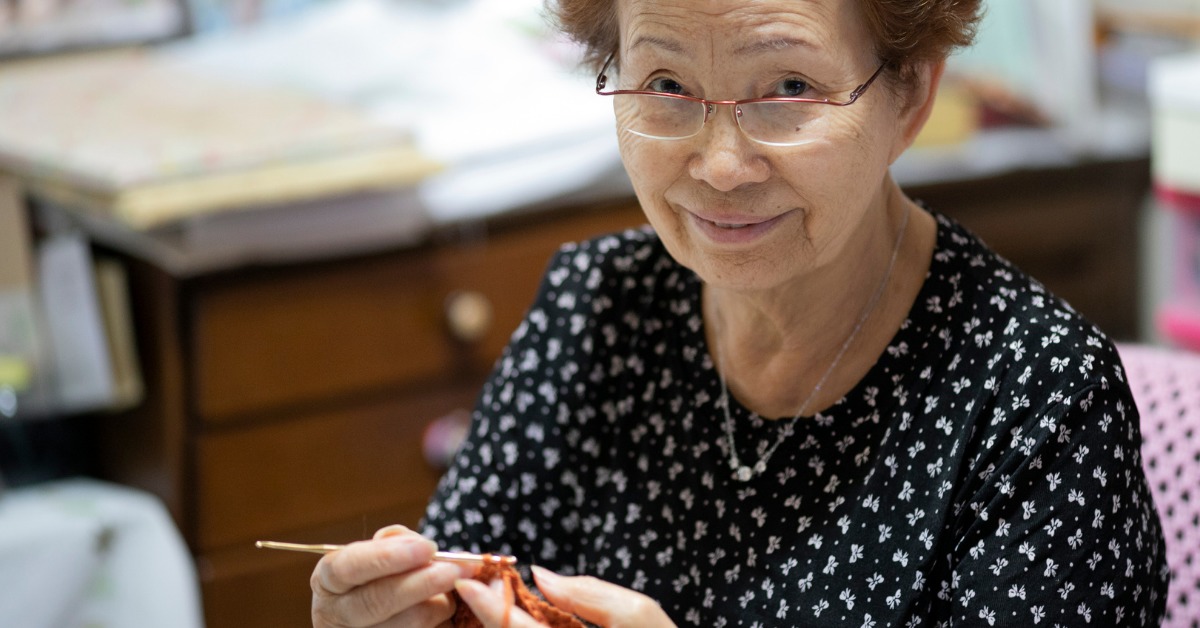Author: Jonathan Sellars
Published: June 4, 2022
We’re often asked how to deal with a loved one who refuses to eat. This is a complex and emotional issue, as you may feel like you are not doing enough or somehow failing them. The first thing to understand is that refusing to eat is a common symptom of dementia, and there may be several underlying reasons for this. For example, the person may be experiencing changes in taste or smell, having difficulty swallowing, or simply not hungry. There are also many non-physical reasons people with dementia might not want to eat, such as depression, forgetting, or feeling overwhelmed by food options.
Here are six tips to help make mealtime feel less like a chore.
[continue reading…]
Author: Jonathan Sellars
Published: May 17, 2022
Dementia is a complex illness that can be difficult to understand, especially if you don’t have experience with it yourself. This condition affects how people think, feel, and behave, causing them to act in ways that are out of character. For many people dealing with dementia, these behaviors can be frustrating and heartbreaking as they see their loved ones slipping away from them.
[continue reading…]
Author: Jonathan Sellars
Published: April 19, 2022
It can be challenging to tell when our parents need help. After all, they’re the ones who raised us – they must know how to take care of themselves, right? But as our parents age, they may need more assistance than we realized, and the best way to ensure that your aging loved ones are comfortable and safe is to have a face-to-face conversation before they’ve progressed to that point that you’re worried to leave them.
[continue reading…]
Author: Jonathan Sellars
Published: April 13, 2022
Loneliness is a common problem many face as they grow older. Seniors often feel isolated from those around them, especially after their spouse dies or a family crisis breaks up a circle of siblings. Such feelings can be increasingly exasperated due to the pandemic and the fears of transmitting the Covid-19 virus.
We spoke to Vahe Karapetian, a registered nurse and experienced caregiver at UVM Medical Center, to help us navigate this topic of senior isolation.
“Everybody’s trying to be safe,” says Vahe. This is often resolved for children of aging parents with fewer visits during the pandemic to avoid spreading the virus. Compounded with added hesitation from neighbors to reach out and seniors becoming more and more housebound, loneliness presents a real problem.
[continue reading…]
Author: Jonathan Sellars
Published: April 8, 2022
There is no shortage of jobs. However, quality work has proved difficult to come by.
The local grocery store is hiring. The post office is hiring. Your favorite pizza place is hiring.
Most storefronts within any Vermont community have an opening. But our neighbors want to become more than a name tag.
They want work that matters.
Work that challenges and inspires.
Work with a purpose, not just a paycheck.
Because for many, a paycheck doesn’t get them further than the next week or even the next few days.
Vermonters need a solution. Not just for themselves but for the people they love.
At Hands at Home, we believe life shouldn’t revolve around simply navigating from bill to bill but building a life. One you are proud of!
[continue reading…]
Author: Jonathan Sellars
Published: June 30, 2019
As we grow older, many of us make an important and challenging transition. Once, we were children who were cared for by our parents. But at some point, we become responsible for taking care of our elderly parents. Caring for aging parents is a complicated task, with a steep learning curve. But when it comes to avoiding some pitfalls, a little basic knowledge goes a long way. If you need in-home care for your aging parents in Vermont, here is some important information to consider. [continue reading…]
Author: Jonathan Sellars
Published: April 30, 2019
According to Genworth, every day until 2030, more than 10,000 Baby Boomers will turn 65. And 7 out of 10 people will need long-term care in their lifetime. These figures mean that many adults, seniors, and elderly people in Vermont will need to make critical decisions about their long-term care. And for most people, one of the biggest decisions is choosing between in-home care or nursing home care. Doing this means answering some questions. First, what is the cost of in-home care? How does the cost of in-home care for elderly people or the cost of at home hospice care compare to nursing home
care? Is there more to consider than the cost of an in-home caregiver? [continue reading…]
Author: Jonathan Sellars
Published: April 15, 2019
Because of advances in medicine and technology, people are able to live longer than ever before. For the vast majority, their desire is to age at home in familiar surroundings with their friends, family, pets, and the treasured belongings they’ve collected throughout their lives. [continue reading…]










